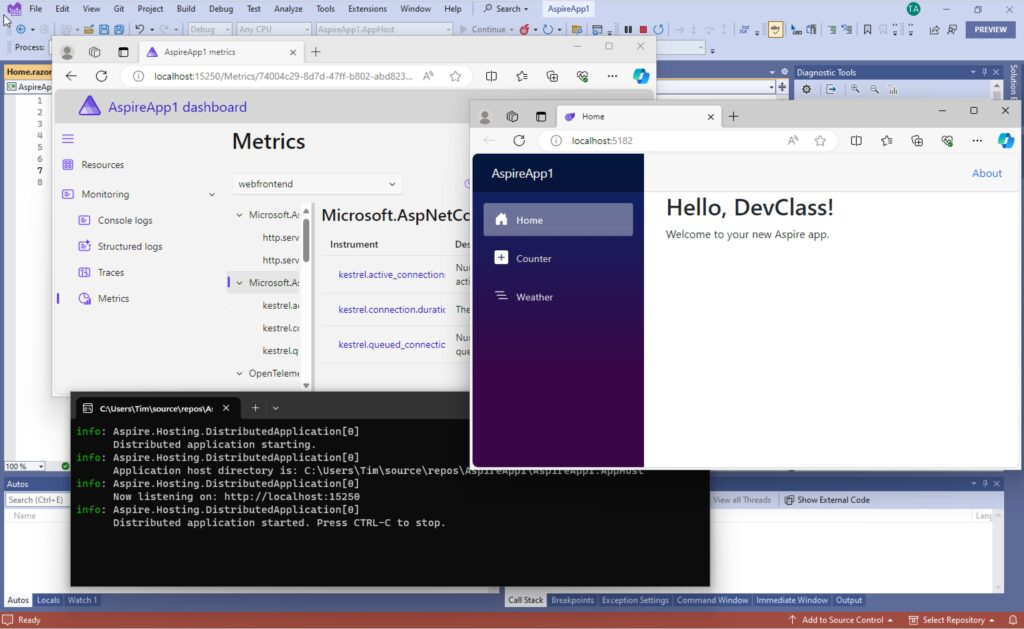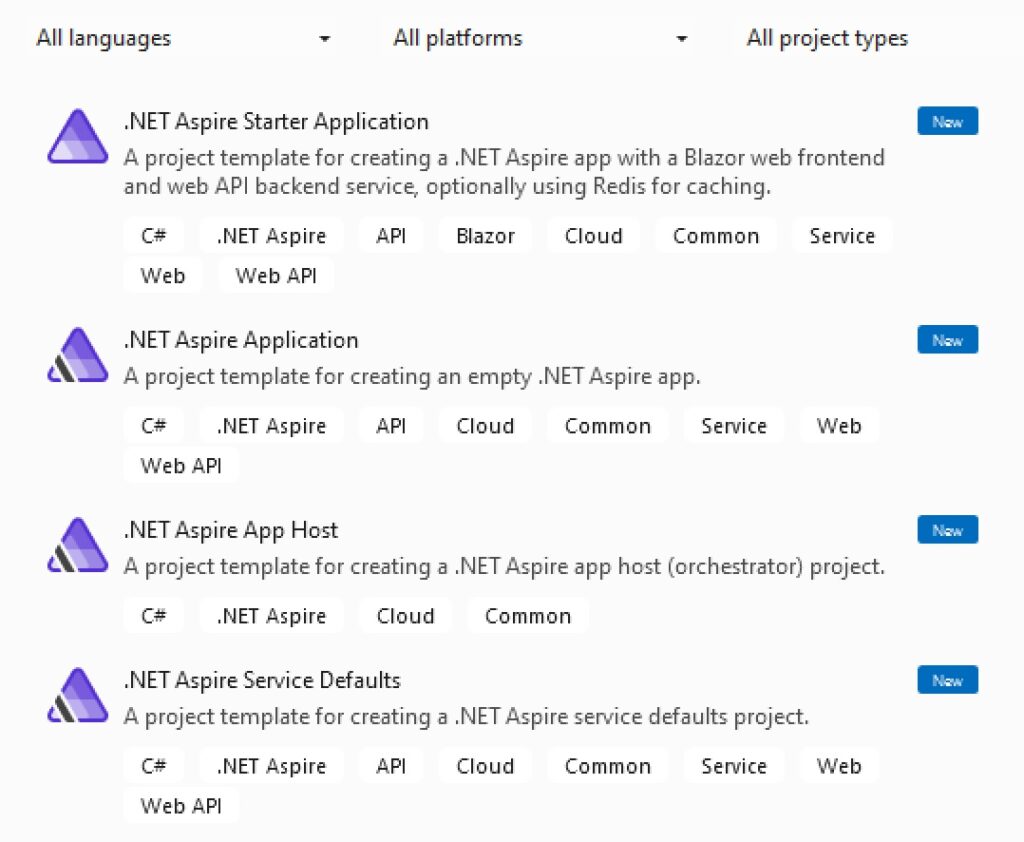
Microsoft will focus on the Aspire stack in .NET 9, now in preview and likely to be released in November this year. The company also released Visual Studio 17.9 and a preview of Visual Studio 17.10, which includes the beta Aspire SDK.
Aspire, introduced in November last year, is a .NET cloud stack for building cloud-native applications complete with resilience and observability. Aspire is part of .NET 8 but still in preview, with preview 3 released yesterday. Preview 3 includes a refactored dashboard which now runs as a separate executable, communicating with the application via gRPC, a remote procedure call framework, as well as a range of new components including support for OpenAI, and for Oracle and MySQL databases.
The .NET team posted about the plans for .NET 9, which will not be a long-term support release. Aspire, said the team, will deliver “paved paths to popular production infrastructure and services, for example running in Kubernetes and using managed database and caching services like Redis.” Simplification of cloud native development is welcome, but the company may also have in mind that Aspire’s Azure-centric components will drive deployment to its cloud platform.
Despite initial release in .NET 8, it looks as if will be in .NET 9 that Aspire matures into something production-ready. A GitHub theme on cloud native development references Aspire as well as work on an eventing framework for processing messages from various queue providers, and distributed cache updates.

Both Visual Studio and the cross-platform VS Code will gain new tools for .NET Aspire, to include configuring components, debugging, and integration with the developer dashboard. The default deployment target for Aspire applications is Azure Container Apps, which is built on Kubernetes but does not expose Kubernetes APIs, or the Azure Kubernetes Service.
Additional features in .NET 9 will include extending support for AOT (ahead of time) compilation to more application types, new libraries for AI development, and updates to the various .NET frameworks including ASP.NET and .NET MAUI.

On the Visual Studio side, developers with VS 2022 17.9 now have the benefit of “AI generated Git commit messages” – for those with a GitHub Copilot subscription – as well as C++ memory layout visualization, a new scaffolding feature for Blazor which will generate code for database forms, and other features.
The preview of VS 17.10 has a feature that may prove controversial: it will automatically install “recommended additions to the workloads you’ve already installed.” This can be turned off in settings, but Microsoft said that it will “streamline your update experience.”
The latest preview also includes a new settings panel that includes the ability to customize settings both at the user and solution level, as well as JSON-based storage of settings for easier sharing.
